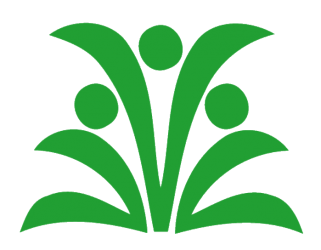PAYMENT OF THE GRANTS
USE OF THE GRANT
If the grant recipient uses the grant for hiring assistants or for paying wages/salaries for other work related to his/her research or project, he/she is responsible for tax withholding and other normal employer obligations.
GRANT TYPES
Personal grant
The purpose of a personal grant is to provide the grant recipient with subsistence that enables him/her to engage in the research or other project that the grant has been awarded for. This means that the grant enables the grant recipient to work full time (average normal weekly working hours 37.5) without having to do other work. In addition to the regular grant-based research work, the grant recipient is, however, allowed to take on other paid work if it helps him/her complete the research project, or if it contributes to the development of the contents of the research or to his/her qualifications. The additional work must not prevent the completion of the research project in accordance with the research plan.
A maximum of 50% of the personal grant may be used for covering costs caused by the research or other project for which the grant is awarded. This maximum amount is stated in the grant decision. In principle, this amount is intended for covering such costs as equipment, material and travelling costs, the cost of hiring assistants, as well as the overhead fee possibly payable to the research institute. This fee may not be more than 10% of the total amount of the grant. As statutory insurance premiums are not deductible expenses in the insurance application, they are not included in the costs.
Post-doc researcher grant
Project grant awarded to a research/working group
Grant for health promotion activities
Large grant
CONTINUATION GRANT
GRANT RECIPIENT’S SOCIAL SECURITY COVER
Under certain conditions, the grant recipients are covered by the statutory pension scheme, rehabilitation benefits and group life insurance as prescribed by the Farmers’ Pensions Act (MYEL). They are also covered by the statutory occupational accident security as prescribed by the Act on Farmers’ Occupational Accident Insurance (MATAL) and the earnings-related unemployment benefits as prescribed by the Sickness Insurance Act (SVL). In addition, they are entitled to the Social Insurance Institution’s rehabilitation allowance.
A grant recipient who resides in Finland is required to take out a statutory grant recipient’s earnings-related pension and occupational accident insurance from the Farmers’ Social Insurance Institution (MELA) if he/she works on the grant continuously for at least four months and if the amount of the grant exceeds the prescribed minimum limit (in 2012: € 1184.31). The minimum limit changes annually. If the prerequisites for taking out the insurance apply, the insurance is obligatory. Under certain conditions, the insurance cover requirement also applies to grant-based work performed abroad and grant-based work performed by a foreigner in Finland.The grant recipient must personally contact MELA to obtain an appropriate insurance cover and also pay all the relevant fees and premiums. The insurance application must be submitted within three months from starting grant-based work. The insurance premium is about 14% of the amount of the grant. The insurance only covers grant-based work.
The Juho Vainio Foundation states the duration period of the grant-based work (number of working months) in its decisions on personal grants. However, the number of working months is only the Foundation’s estimate of the number of months that the grant covers. The actual grant-based work period of the grant recipient may be longer or shorter. The Foundation does not inform MELA what the period is. The grant recipient is responsible for notifying MELA how long he/she intends to work on the grant.
The decisions on the other grants do not include a statement on the duration period of the fund-based work. If a post-doc researcher uses the grant as a personal grant, he/she is responsible for notifying MELA how long he/she intends to work on the grant.
If a project grant awarded to a research/working group is distributed to the research/working group head (person responsible for the project) or members as a grant and not as a salary, the research/working group head must provide MELA with the names, contact information and personal identity codes of the persons who work on the grant, as well as the amounts distributed them. The grant recipients are responsible for informing MELA how long they intend to work on the grant.
Information on social security matters is provided above. Further information on grant recipients’ social security cover can be obtained from MELA at vakuutus@mela.fi and www.mela.fi, and from MELA’s regional representatives (contact information at www.mela.fi).
REPORTING
Reporting obligation: If the research or other project that the grant has been awarded for has not been started or implemented in accordance with the plan submitted to the Foundation, the grant recipient must immediately send a free-form account on the matter to the Foundation by mail or email. The Foundation must also be informed of any changes in the composition of the research/working group.
Progress report: The grant recipient must complete a report form on the progress and estimated time of completion of the grant-funded research or other project in the electronic grant system of the Foundation by the end of January each year. The progress report is submitted into the system via the electronic application form (“Reporting” tab). Also those grant recipients who have not submitted their applications through the electronic grant system are required to submit their progress reports via the grant system in accordance with the instructions that can be found in the system. The progress report need not be delivered in the paper format to the office of the Foundation.
The final report must be submitted via the Foundation’s electronic grant system no later than six months from the completion of the research or other project. If the funding granted by the Foundation for a research or other project has ended before the work is completed, i.e. the grant has only covered part of the work period, the final report must be submitted within six months from the completion of the research or other project. Also those grant recipients who have not submitted their applications through the electronic grant system are required to submit their final reports via the grant system in accordance with the instructions that can be found in the system. In the grant system, the application and its appendices are transferred to the Foundation in an electronic format. Only one final report covering the whole research or other project must be submitted to the Foundation even if more than one grant has been awarded for it by the Foundation. The final report must state the key results and conclusions of the research or other project and contain an account of the use of the funds received for it. Final reports sent by email are not accepted. The key results and conclusions stated in the final report may be published on the web pages of the Foundation without a separate permission of the grant recipient.
RETURN OF GRANT FUNDS
When a research or other project is completed and the final report submitted, any unused grant funds must be returned to the Foundation.
If, for some reason, the grant recipient discontinues grant-based work or does not start it at all, he/she must immediately inform the Foundation of this and return the unused grant funds.
Grant funds that have not been used for the purpose of the grant must be returned the Foundation.
The returned funds must be paid into the account of the Foundation (FI58 5541 2820 0252 53). The grant number or the year for which the grant has been awarded and the name of the grant recipient must be entered in the message field.
The Foundation reserves the right to interrupt the use of the grant if the research subject has been changed without the permission of the Board of the Foundation or if the conditions set by the Foundation have been violated.

